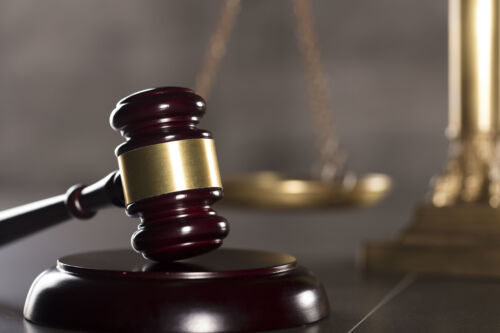Menu
What To Expect at a Bail Hearing
November 30th, 2020

Anytime you appear in court, it is useful to understand the nature of the hearing, who will be present, what the court is expected to address, and what is expected of you as a defendant.
If you have been arrested and charged with a crime, before you can be released on bail the court may schedule a bail hearing. A bail hearing is your opportunity to ask the judge to release you from jail until your trial. Specifically, the purpose of a bail hearing is to set an amount of money that will allow you to be released from jail until your trial occurs, while giving the court assurance that you will appear for scheduled court appearances.
In some cases, the jail may already have a bail schedule in place. You can post bail by paying the money, having a bail bondsman pay it for you, or getting money to post bond from family and friends. Once you post bail, you will be released from jail until your trial occurs.
In more serious cases, the jail does not have a specified bail for the type of crime you have been charged with. Instead, you must go before the judge and ask to be released. The judge will need to set a bail amount so you can be released from jail pending trial.
How Long After I’m Arrested Will the Bail Hearing Be Scheduled?
In most cases, the bail hearing happens 24 to 48 hours after you have been arrested. At the bail hearing, the judge will explain the charges against you, explain your rights, and set a bond amount. The bail can be paid as a cash bond or a surety bond.
For the most serious crimes, like cases involving rape, murder, kidnapping, and drug trafficking, your lawyer will need to file a motion to request a bail hearing. At the hearing, the prosecutor and the law enforcement officer who arrested you will be present in court. The judge will hear evidence from both sides. There is no jury present at a bond hearing.
What Happens at a Bail Hearing?
The judge’s primary concerns in setting a bond amount are: (1) whether you will show up for trial if the judge lets you go; (2) whether you are a danger to the community; (3) the likelihood that you will commit additional crimes if you are released; and (4) the risk that you will try to intimidate witnesses who may be called to testify against you.
At the bail hearing, your attorney will ask the judge to release you. The judge will set the conditions of your release, which may include posting a cash or surety bond, release on your own recognizance, or release under supervision.
The prosecutor may agree with your lawyer’s proposal for release, argue that you should not be released, or ask the judge to set the conditions of your release.
A bail hearing is unique in that it is the only time in a criminal case where the defendant bears the burden of proof. In a bond hearing, the defendant must prove that he will return to court for the trial and other scheduled appearances.
Your criminal defense lawyer can help by showing the court that you have ties to the community, such as an employment history, a place to stay, and people in town who will support you.
If the judge decides to let you go, the next step will be setting the amount of the bond. The bond amount is left to the judge’s discretion, and will be set in an amount that will satisfy the judge that you will return to court. If the bond is too high your lawyer can ask that the bond amount be reduced.
The judge can also deny your request for bond. In that case, you can appeal the bond decision, or request a new bond hearing.
If you are released on bond, you must be careful not to violate the judge’s conditions. Otherwise, you will forfeit the bond amount and be placed back in jail until trial.
How Can a Criminal Defense Attorney Help With a Bail Hearing?
At Just Criminal Law, we know that if you have been charged with a crime and are in jail, getting out can feel like the most important thing in the world. Working with an experienced criminal defense attorney can help. Our team of criminal defense professionals knows how Wyoming courts work, and are here to assist you in making a presentation of evidence that will give you the best chance of being released on bond.
After the bail hearing, attorney Christina L. Williams and her team of criminal defense professionals can assist you with every step of the criminal process. We will thoroughly investigate your case, explain your options, help you decide on the best path forward, and defend you in court.
We invite you to learn more about the cases we handle, the communities we serve, and to meet our team. Then contact us today to schedule your personalized case review and strategy session.
DISCLAIMER: The information contained in this article is offered for educational purposes only. This information is not offered as legal advice. A person accused of a crime should always consult with an attorney before making decisions that have legal consequences.
Categories: Criminal Charges - General Questions





